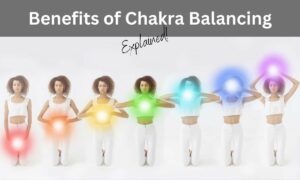Have you ever left a Reiki session feeling more tired than before? Don’t worry, you’re not alone. But does Reiki actually make you tired?
The answer may surprise you. Join us as we delve into the science behind this ancient healing practice and explore the various effects it can have on your energy levels.
Get ready to uncover the truth about Reiki and why it’s worth exploring further. Yes, Reiki can sometimes make you feel tired, but it depends on the individual and their specific needs.
Keep reading to find out why.
Does Reiki Make You Tired?
Feeling tired after a Reiki session is a common experience, and there are various reasons for it. It could be because you have been overdoing it and your adrenal glands are overworked, or because you need more Reiki and it may take a few sessions to feel rested enough to see the true benefits.
It is important to listen to your body and make space to rest and sleep if you feel tired after a Reiki healing. It is possible to experience some side effects after a Reiki session, including feeling extremely tired and depleted of energy in the short-term

Why do I feel sleepy after Reiki?
Feeling tired after a Reiki session is a common experience, and it is normal to feel tired after a Reiki session. The duration of tiredness varies from person to person and depends on various factors.
Tiredness usually lifts within a few hours, and by the next day, you are likely to feel more energized and better than before the treatment2. Feeling tired after Reiki just means that you need more Reiki, and it can take a few sessions to get someone rested enough to see the true benefits of energy block removal.
If you are feeling tired after a Reiki healing, listen to your body and make space to rest and even sleep. Keep well hydrated, and don’t do anything that will take you out of your calm, relaxed state.
How long does the tiredness last after a Reiki session
The duration of tiredness after a Reiki session varies from person to person and depends on various factors. It is common to feel extremely tired and depleted of energy in the short term following a Reiki session1.
Tiredness usually lifts within a few hours, and by the next day, you are likely to feel more energized and better than before the treatment2. If you are feeling tired after a Reiki healing, listen to your body and make space to rest and even sleep.
Keep well hydrated, and don’t do anything that will take you out of your calm, relaxed state2. It is important to trust the process and give yourself time to adjust and adapt to the new and healthier state of being.
Is It Normal to Feel Tired After a Reiki Session?
Feeling tired after a Reiki session is a common experience, and it is normal to feel tired after a Reiki session123. The duration of tiredness varies from person to person and depends on various factors. Tiredness usually lifts within a few hours, and by the next day, you are likely to feel more energized and better than before the treatment.
Feeling tired after Reiki just means that you need more Reiki, and it can take a few sessions to get someone rested enough to see the true benefits of energy block removal1. If you are feeling tired after a Reiki healing, listen to your body and make space to rest and even sleep. Keep well hydrated, and don’t do anything that will take you out of your calm, relaxed state.
Is It Normal to Feel Flu-Like Symptoms After a Reiki Session?
It is possible to experience flu-like symptoms after a Reiki session, and it is a normal reaction to the treatment. As toxins are released from all levels of your being, you may experience flu-like symptoms, fever, headache, joint and muscle pain, body aches, sore throat, general malaise, sweating, chills, nausea, itch, extreme sleepiness, and emotional upset.
These symptoms are temporary and usually subside within a few hours or days. If the symptoms persist beyond 48 hours or feel severe, it is advised that you seek medical attention. It is important to trust the process and give yourself time to adjust and adapt to the new and healthier state of being.
What Can Be Done to Alleviate Tiredness After a Reiki Session
If you are feeling tired after a Reiki session, there are several things you can do to alleviate the tiredness. Firstly, listen to your body and make space to rest and even sleep. Keeping yourself well-hydrated is also important.
Drinking a lot of water and considering journaling and/or meditation can also go a long way in assisting your body to quickly adjust and adapt to its new and healthier state of being. It is important to trust the process and give yourself time to adjust and adapt to the new and healthier state of being. If your tiredness persists beyond 48 hours or feels severe, it is advised that you seek medical attention
How Does Reiki Affect Your Body?
Reiki is a form of energy healing therapy that focuses on optimizing the body’s natural healing abilities by balancing the life force energy or qi/chi1. Reiki has been shown to reduce stress, and pain levels, help with depression/anxiety, increase relaxation, and improve fatigue, and quality of life1.
During a Reiki session, a practitioner gently places their hands on or above your body to balance its flow of energy2. Reiki can affect the body in various ways, including reducing stress, pain levels, and anxiety, increasing relaxation, and improving fatigue, and quality of life1. It is occasionally associated with side effects like discomfort, tiredness, and anxiety 32. It is common to feel extremely tired and depleted of energy in the short term following a Reiki session4.
Reiki can cause the shifting and moving of energy in the body4. While the side effects and benefits of Reiki are generally profoundly positive, it is important to be aware of the temporary side effects sometimes experienced by patients4.
How Do You Know if Reiki Works?
Reiki works by optimizing the body’s natural healing abilities by balancing the life force energy or qi/chi12. Reiki has been shown to reduce stress, and pain levels, help with depression/anxiety, increase relaxation, and improve fatigue, and quality of life2. The effects of Reiki can be subjective and vary from person to person.
Some people may feel a warm or tingling sensation during a Reiki session, while others may feel nothing at all3. Additionally, Reiki can cause the shifting and moving of energy in the body, which can lead to temporary side effects such as headache, nausea, fatigue, or emotional upset45.
These symptoms are usually an indication that the body is detoxifying itself in preparation for healing and that more Reiki is needed5. It is important to find a qualified professional Reiki practitioner to ensure that you receive the best
What Kind of Energy Is Reiki?
Reiki is a type of energy healing therapy that focuses on optimizing the body’s natural healing abilities by balancing the life force energy or qi/chi. Reiki practitioners believe that our bodies have energy fields, and if this energy is disrupted, it can lead to health problems. The goal of Reiki is to encourage physical, mental, emotional, and spiritual healing by realigning your energy.
During a Reiki session, a practitioner gently places their hands on or above your body to balance its flow of energy2. Reiki is a form of complementary therapy relating to energy healing1. It involves the transfer of universal energy from the practitioner’s palms to the client. Reiki is a biofield energy therapy that focuses on optimizing the body’s natural healing abilities by balancing the life force energy or qi/chi3.
Key Takeaways
| Key Takeaways |
|---|
| Reiki is a form of energy healing therapy that aims to balance the flow of life force energy or qi/chi in the body. |
| Feeling tired after a Reiki session is a common experience, but it usually lifts within a few hours, and you will likely feel more energized the next day. |
| It is normal to experience side effects after a Reiki session, such as fatigue, headache, nausea, or emotional upset, but these symptoms are usually temporary and an indication that the body is detoxifying itself in preparation for healing. |
| To alleviate tiredness after a Reiki session, it is essential to listen to your body and make space to rest and sleep. Keeping yourself well-hydrated, journaling, and practicing meditation can also help. |
| Reiki can affect the body in various positive ways, including reducing stress, pain levels, and anxiety, increasing relaxation, improving fatigue, and quality of life. |
| The effects of Reiki are subjective and may vary from person to person. It is important to find a qualified Reiki practitioner and trust the process, giving yourself time to adjust and adapt to the new and healthier state of being. |



